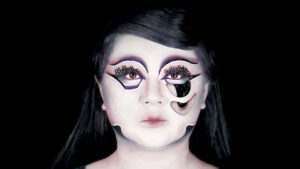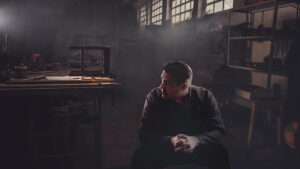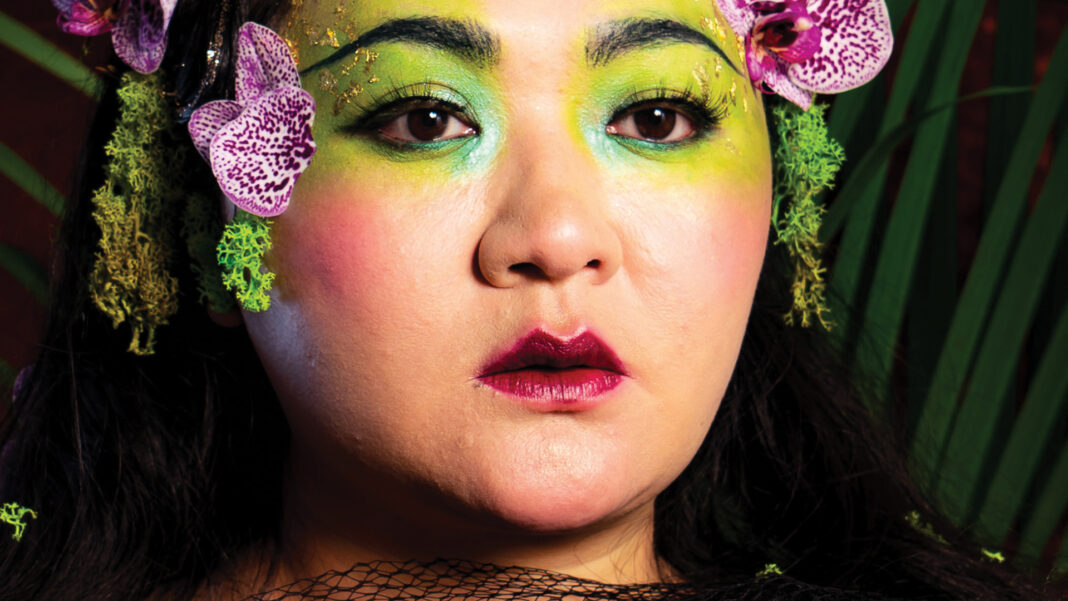If you are a basketball fan you might know Royce Young who writes for ESPN. If you don’t you should read Young’s very personal story of the painful decisions he and his wife made which can best be summed up with one sentence from the article he wrote for Medium: “So we sat in a doctor’s office, five months before our daughter was set to be born, knowing she would die.” Now ask yourselves what Pulitzer Prize-winning composer Du Yun has to do with all of this.

Du Yun has collaborated with librettist/director Michael Joseph McQuilken on In Our Daughter’s Eyes, based on Young’s experiences, which is having its world premiere at LA Opera beginning on Thursday. McQuilken was the director of Du Yun’s Pulitzer-Prize winning second opera, Angel’s Bone. The opera Sweet Land, on which she was one of two composers, was named 2021 Best New Opera from the North American Critics Association.
She doesn’t shy away from stories with big issues at their core and In Our Daughter’s Eyes is no exception. Baritone Nathan Gunn is the sole singer in the work. Beth Morrison Projects, a staunch supporter of new works, is presenting this 70-minute opera with LA Opera.
I spoke yesterday with Du Yun about In Our Daughter’s Eyes, its themes and whether happiness and grief are flip sides of the same coin. What follows are excerpts from our conversation that have been edited for length and clarity.
How did you first become aware of Royce Young’s story?
Beth Morrison and Nathan Gunn talked about making a work about manhood in 21st century and they reached out to me and asked me if I would be interested in the project. I remember saying that I don’t think I know a lot about manhood and nor am I particularly interested in exploring manhood. But I have a really close relationship with my father and he is a really good role model for for me. But he is not a perfect person – just like any of us. So I wanted to to find a point of entry through that perspective. And I worked with Michael Joseph McQuilken on Angel’s Bones when we did the premiere production and he was the stage director. So it’s really nice to have this chance to work with him. We talked about the new kind of a point of entry and then he found Royce Young’s article.
Once you and Michael delved into the story how did you go about expressing it musically?
Musically, it’s always in a way, like a second thought to me. It’s funny, right? I’m always interested in human nature and humanities and the complexity of the humans in question. So for me I just sat down with Nathan, Beth, with Michael really going through the different layers of the psyches of this protagonists. And I don’t want to also see the easy way out, right? He is a flawed human being. And so my first test is understanding and exploring the layers of that flawed human being who is reckoning with this process. When the process is challenging, what’s his response and how’s he making the decisions? And also the mother and her decision. What’s his response to the mother’s decision, so on and so forth. The music then becomes easier – if that makes sense – just for me to hear it. It’s much easier and quicker.

We have all these global crises going on right now, but it seems like the moments that get us closer to understanding them or understanding ourselves are moments like what goes on in In Our Daughter’s Eyes. Because it feels like it’s the personal, it’s the deeply emotional individual story that gives perspective on the whole thing.
Absolutely. I have been in Berlin this spring at the American Academy. I would sometimes spend time at the Berlin main train station where you see so many refugees coming from Ukraine off the trains. You do see the family coming off the train that had to say goodbye to each other. That’s what made us want to weep. The feeling of compassion is because through that we actually can connect with our family, with our own future generation and with our parents and grandparents. I think also the global COVID lockdown, you know, I think a lot of us are looking inward looking to the cause or structures that we have in life.
Speaking of perspectives, what impact did winning the Pulitzer Prize have on you?
I just wrote pieces and write works. All of a sudden you do have a lot more so-called platforms and I’m glad to use those opportunities to make space for other people as well. Not just other people, but wider topics that we need to talk about and certain things that I would like to engage in. Those are the very positive impacts from the recognition.
Euripides said, “Lucky that man whose children make his happiness in life and not his grief, the anguished disappointment of his hopes.” What Euripides doesn’t say is that through that grief some happiness can be found. What’s your view of the relationship with happiness to grief and vice-versa?
I think there is a huge difference between my understanding of what happiness is and the mainstream definition; the American life or even developing country’s happiness. I absolutely am not someone who strives for happiness in life. However, having said that, seeing my parents are happy makes me actually very happy.
I think that I do feel grief often. I think that’s life. I wouldn’t say I’m the most pessimistic person ever. The planet is going to explode anyways, right? But while we are here we got to make some some effort and that’s who I am – so I don’t chase happiness.
To see and hear my conversation with Du Yun, please go here.
Main Photo: Composer Du Yun (photo by Zhen Qin/Courtesy LA Opera)










